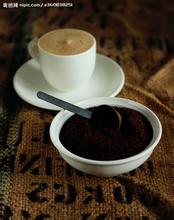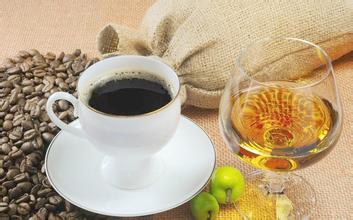Introduction to the characteristics of manor flavor and taste varieties of Panamanian Rosa Coffee
Introduction to the characteristics of manor flavor and taste varieties of Panamanian Rosa Coffee
Coffee cultivation is becoming more environmentally friendly, and farmers are planting, harvesting and handling them sustainably.
More international buyers and cup testers choose to visit the quality of coffee in Panama, but also to learn to make up for their shortcomings.
Because of the perfect match between rose summer and Panamanian environment, more rose summer will be born in Panama through different planting and treatment methods, building the pyramid of rose summer coffee.
In addition, the annual competition held in Panama-"Best of Panama" (the best coffee in Panama), organized by the Panamanian boutique coffee association, also attracts buyers from all over the world to come to "treasure hunt" every year, and the price of coffee, which wins a big prize every year, is also rising steadily.
Traditional seedling cultivation and farming techniques, as well as treatment methods, have become more scientific and sophisticated from generation to generation, coupled with advanced science and technology and innovative ideas, making farmers pay more attention to the quality of coffee.
In order to improve the quality of coffee, farmers are willing to learn more advanced technology, are willing to experiment with new methods, are willing to accept new ideas, they have raised coffee cultivation to a higher level.
Panama has an ideal environment for coffee to grow, pozzolanic soil, good moisture and sun balance.
Panamanian coffee grows at an altitude of more than 1400 meters, and the low temperature will make the coffee grow longer, which is more conducive to the development of flavor and aroma.
The biodiversity here is very valuable. Almost all coffee is grown in shade. The pristine rainforest provides a living environment for birds and other wild animals, as well as protection, and irrigated crops fully use natural water sources.

Important Notice :
前街咖啡 FrontStreet Coffee has moved to new addredd:
FrontStreet Coffee Address: 315,Donghua East Road,GuangZhou
Tel:020 38364473
- Prev

Taste and Flavor description of Honduran Coffee introduction to the treatment of manor characteristics in producing areas
In Honduras, coffee producing areas are divided into six major producing areas, covering the west and south, namely Santa Barbara (Santa Barbara), Perry request (El Paraiso), Coban (Copan), Bazi (La Paz) and Gongmayagua (Comayagua) and Olanqiu (Olancho).
- Next

Flavor description of South Minas Coffee Bean in Brazil Variety characteristics of Coffee beans
Flavor description of South Minas Coffee beans in Brazil Variety characteristics since the introduction of coffee trees from French Guiana (Guyana) in 1720, coffee production has gradually become a science. Before 1990, the Brazilian government carried out strict monitoring of the coffee industry, including strict intervention and price protection measures, and the state has been implementing minimum price protection measures for farmers.
Related
- Detailed explanation of Jadeite planting Land in Panamanian Jadeite Manor introduction to the grading system of Jadeite competitive bidding, Red bid, Green bid and Rose Summer
- Story of Coffee planting in Brenka region of Costa Rica Stonehenge Manor anaerobic heavy honey treatment of flavor mouth
- What's on the barrel of Blue Mountain Coffee beans?
- Can American coffee also pull flowers? How to use hot American style to pull out a good-looking pattern?
- Can you make a cold extract with coffee beans? What is the right proportion for cold-extracted coffee formula?
- Indonesian PWN Gold Mandrine Coffee Origin Features Flavor How to Chong? Mandolin coffee is American.
- A brief introduction to the flavor characteristics of Brazilian yellow bourbon coffee beans
- What is the effect of different water quality on the flavor of cold-extracted coffee? What kind of water is best for brewing coffee?
- Why do you think of Rose Summer whenever you mention Panamanian coffee?
- Introduction to the characteristics of authentic blue mountain coffee bean producing areas? What is the CIB Coffee Authority in Jamaica?

